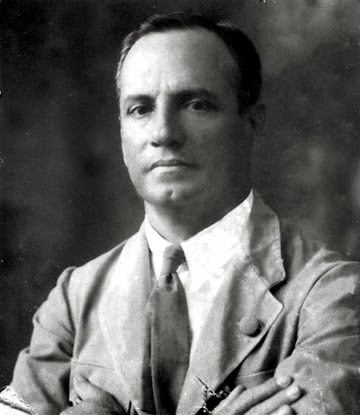
DYNAMIC labour leaders and their membership must be credited for bravely creating a new vision of unity for the Caribbean.
In fact, it took unusual courage and determination for labour to emerge as the most vibrant entity in the colonial era which dared to make proposals for the development of the colonies.
It is obvious that the British Labour Party and the Colonial Office, in England, failed to initiate appropriate political changes for the West Indian colonies which would have aided the realisation of such plans as contained in the British Guiana proposals.
West Indian failure in this regard is best understood not in the failure of the labour movement but in the inflexibility and lethargy of the Colonial Office in addressing the needs of the colonies.
The external environment also intensified the burden of West Indian leadership, particularly the crisis of global capitalism during the 1930s and the ravages of the Great Depression. The Depression created economic problems which absorbed the energies of labour leaders in the various colonies and impeded the regionalisation movement.

Within the Empire, Britain was unable to contain the spirit of nationalism which demanded recognition of the sovereignty of colonial peoples. Labour remained the catalyst for change and sought to mobilise the Caribbean peoples through an integrated labour movement. The second Guianese and West Indian Labour Conference was convened in June 1938. Delegates from Trinidad included Cipriani, A Gooding and L Thomas of the Trinidad Labour Party (TLP), as well as Ralph Mentor and Adrian Cola Rienzi of the Oilfield Workers’ Trade Union (OWTU).
They were given the mandate to map out plans for the cooperation of trade unions among various countries. The presence of the delegation from Suriname indicated growing support for a regional labour fraternity.
At the historic conference, Rienzi proposed the formation of the British Guiana and West Indies Labour Congress (BGWILC) to replace the inactive Guianese and West Indian Federation of Trade Unions and Labour Parties. In addition, he urged the delegates to work for the transfer of economic and political power from the capitalist class to the working class. He also appealed for the nationalisation of the sugar and oil industries.
Trinidad was the venue for the third Guianese and West Indian Labour Conference which was held in November 1938. The members of the Executive of the newly formed BGWILC comprised representatives from Trinidad, Suriname and British Guiana while Barbados was represented by Grantley Adams. The purpose of the conference was the formulation of a regional perspective for presentation to the Moyne Commission which toured the British West Indies during 1938-1939. The BGWILC expressed its commitment to improving working conditions for labour and to forging stronger bonds of intercolonial solidarity among workers through regular contact with trade unions in the Caribbean.
The fourth British Guiana and West Indian labour conference was held from 28 February to March 1, 1944,in British Guiana. Among the representatives were T A Marryshow from Grenada, Grantley Adams of Barbados, Albert Gomes (Deputy Mayor of Port of Spain and President of the Federated Workers Trade Union), Captain Arthur Cipriani and Vivian Henry of the TLP and Theo Jean of the OWTU. At the Conference, the General Secretary of the British Guiana Trades Union Congress, H J M Hubbard, appealed for closer contact among trade unions in the British West Indies. One of the resolutions passed at the conference requested governments in the various colonies to permit the free movement of labour leaders within the region.
The search for a confederation of labour reached its zenith in 1945 with the formation of the Caribbean Labour Congress (CLC). The founding conference was convened by the Barbados Workers Union primarily to create a strong regional labour movement linking trade unions and labour parties.
The conference was held duringSeptember 17 to 27 1945, comprising twenty-three delegates representing nine colonies. This was the first labour conference in the West Indies which embraced so many territories and it was the first time there was such direct contact between labour in Jamaica and organisations in the Eastern Caribbean and British Guiana.
It was also the first time delegates to a West Indian labour conference came from Antigua, Bermuda, Jamaica, St. Lucia and St. Vincent, while others represented Barbados, Grenada, Guyana, Surinam and Trinidad and Tobago. The Congress was the first successful venture in working-class integration at an administrative level, and the only genuinely independent federation of labour organisation in the region.
Dr Jerome Teelucksingh is a recipient of the Humming Bird (Gold) Medal for Education and Volunteerism. He is attached to the Department of History at the University of the West Indies at St Augustine. He has published books, chapters and journal articles on the Caribbean diaspora, masculinity, culture, politics, ethnicity and religion. Also, he has produced a documentary – Brown Lives Matter and presented papers at academic conferences.
See other articles by Dr Jerome Teelucksingh on AZP News:
Dr Jerome Teelucksingh is a recipient of the Humming Bird (Gold) Medal for Education and Volunteerism. He is attached to the Department of History at the University of the West Indies at St Augustine. He has published books, chapters and journal articles on the Caribbean diaspora, masculinity, culture, politics, ethnicity and religion. Also, he has produced a documentary – Brown Lives Matter and presented papers at academic conferences.
See other articles by Dr Jerome Teelucksingh on AZP News:
The illusion of political Unity
Presbyterians in Trinidad: Humble Missionaries, Local Workers
Religious Plurality: Curse or Blessing
Caribbean Youth Need Optimism, Patriotism
Rethinking Identities in Caribbean, Latin America
November 19: All Inclusive International Men’s Day
Should International Agencies be Blamed for Unemployment
A Need to Observe Word Unemployment Day
An Ideology for the Trade Union Movement
The Man who Couldn’t be Prime Minister
Social Outburst vs Social Revolution
Challenges of the Men’s Movement
If George Floyd was Denied Parole
The Meaning of Indian Arrival Day in T&T
International Men’s Day – A Way of Life
Wounds that cause school violence
May Day: A Time for Solidarity, Strength
Who Coined the Term ‘Black Power’
The illusion of political Unity
Presbyterians in Trinidad: Humble Missionaries, Local Workers
Religious Plurality: Curse or Blessing
Caribbean Youth Need Optimism, Patriotism
Rethinking Identities in Caribbean, Latin America
November 19: All Inclusive International Men’s Day
Should International Agencies be Blamed for Unemployment
A Need to Observe Word Unemployment Day
An Ideology for the Trade Union Movement
The Man who Couldn’t be Prime Minister
Social Outburst vs Social Revolution
Challenges of the Men’s Movement
If George Floyd was Denied Parole
The Meaning of Indian Arrival Day in T&T
International Men’s Day – A Way of Life
Wounds that cause school violence
May Day: A Time for Solidarity, Strength
Who Coined the Term ‘Black Power’
![]()











